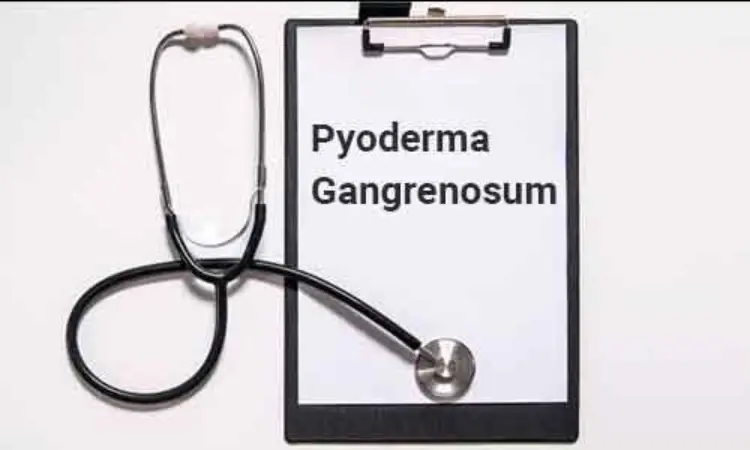- Home
- Medical news & Guidelines
- Anesthesiology
- Cardiology and CTVS
- Critical Care
- Dentistry
- Dermatology
- Diabetes and Endocrinology
- ENT
- Gastroenterology
- Medicine
- Nephrology
- Neurology
- Obstretics-Gynaecology
- Oncology
- Ophthalmology
- Orthopaedics
- Pediatrics-Neonatology
- Psychiatry
- Pulmonology
- Radiology
- Surgery
- Urology
- Laboratory Medicine
- Diet
- Nursing
- Paramedical
- Physiotherapy
- Health news
- Fact Check
- Bone Health Fact Check
- Brain Health Fact Check
- Cancer Related Fact Check
- Child Care Fact Check
- Dental and oral health fact check
- Diabetes and metabolic health fact check
- Diet and Nutrition Fact Check
- Eye and ENT Care Fact Check
- Fitness fact check
- Gut health fact check
- Heart health fact check
- Kidney health fact check
- Medical education fact check
- Men's health fact check
- Respiratory fact check
- Skin and hair care fact check
- Vaccine and Immunization fact check
- Women's health fact check
- AYUSH
- State News
- Andaman and Nicobar Islands
- Andhra Pradesh
- Arunachal Pradesh
- Assam
- Bihar
- Chandigarh
- Chattisgarh
- Dadra and Nagar Haveli
- Daman and Diu
- Delhi
- Goa
- Gujarat
- Haryana
- Himachal Pradesh
- Jammu & Kashmir
- Jharkhand
- Karnataka
- Kerala
- Ladakh
- Lakshadweep
- Madhya Pradesh
- Maharashtra
- Manipur
- Meghalaya
- Mizoram
- Nagaland
- Odisha
- Puducherry
- Punjab
- Rajasthan
- Sikkim
- Tamil Nadu
- Telangana
- Tripura
- Uttar Pradesh
- Uttrakhand
- West Bengal
- Medical Education
- Industry
Early Recognition of Pyoderma Gangrenosum in Pregnancy May Prevent Complications: Study

A new study published in the Journal of Drugs in Dermatology has found that heightened awareness and early diagnosis of pyoderma gangrenosum (PG) during pregnancy can avoid severe maternal and fetal complications. The study was conducted by Gretchen D. and colleagues. The results highlight the critical nature of precise diagnosis and tailored treatment in enhancing outcomes for both mother and infant.
The systematic review of PubMed, Embase, and Web of Science articles found 62 relevant publications describing 63 cases of PG developed during pregnancy or within six weeks postpartum. PG is defined by the acute development of progressive skin ulcers and typically occurs in association with autoimmune conditions, although most of the 55 reviewed cases (87.3%) had no underlying inflammatory bowel or rheumatologic disease. These observations point out that PG may arise in isolation of other disorders in the systemic system, especially at the immunologically dynamic stage of pregnancy.
One of the major concerns noted in the study was the initial misdiagnosis rate. Of 63 patients, 45 (71.4%) were initially misdiagnosed, resulting in delays in starting proper therapy and, on occasion, in the need for unnecessary surgical procedures. PG was frequently mistaken for infectious ulcers or surgical wound complications, which highlights the importance of clinical attention and multidisciplinary approach in the case of non-healing ulcer in pregnancy. Misdiagnosis leads to inappropriate therapy, which aggravates the lesion and also poses greater risk of obstetric procedures.
Key findings
• Management-wise, systemic corticosteroids were used most commonly, being administered in 56 out of 63 cases (88.9%).
• This confirms the key place of immunosuppression in PG therapy.
• 21 patients (33.3%) were treated with cyclosporine, either as a first-line treatment or in steroid-resistant cases.
• Though there was concern for fetal safety, these therapies were well tolerated and effective in general.
• Most importantly, success with therapy depended more on the timing and accuracy of diagnosis than on the immunosuppressive agent used.
• Emergency Cesarean section was the most frequently reported pregnancy complication, being seen in 19 cases.
The research supports that pyoderma gangrenosum in pregnancy is frequently misdiagnosed and undertreated, with resultant poor maternal and fetal outcomes. Heightened clinical awareness, particularly in the presence of uncharacteristic ulcerative lesions, is critical to enhance prognosis. Immunological changes in pregnancy could make some women susceptible to PG even without pre-existing systemic disease.
Reference:
Pyoderma gangrenosum in pregnancy: A systematic review of clinical characteristics, treatment outcomes, and maternofetal implications. (2025, June 30). JDDonline - Journal of Drugs in Dermatology.https://jddonline.com/articles/pyoderma-gangrenosum-in-pregnancy-systematic-review-of-clinical-characteristics-treatment-outcomes-maternofetal-implications-S1545961625P8843X?mkt_tok=NzkzLUxNVC0yMDcAAAGbbFd0_9l3nsoCbWRi0JIkhQ1QzCyID4HrQfW19L2JGk3VpkVUWRB8ij4tE5-EsSFXBUtZgJuwlM0-tl2HmU8d-MTWj6zzKyrFiU0-D0sDr Riya Dave has completed dentistry from Gujarat University in 2022. She is a dentist and accomplished medical and scientific writer known for her commitment to bridging the gap between clinical expertise and accessible healthcare information. She has been actively involved in writing blogs related to health and wellness.
Dr Kamal Kant Kohli-MBBS, DTCD- a chest specialist with more than 30 years of practice and a flair for writing clinical articles, Dr Kamal Kant Kohli joined Medical Dialogues as a Chief Editor of Medical News. Besides writing articles, as an editor, he proofreads and verifies all the medical content published on Medical Dialogues including those coming from journals, studies,medical conferences,guidelines etc. Email: drkohli@medicaldialogues.in. Contact no. 011-43720751


